Delta 9 THC has a paradox: low doses of Delta 9 have significant benefits, whereas higher amounts can often cause unwanted or detrimental effects.
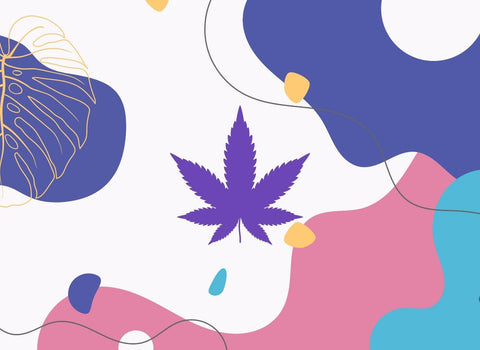
Individual factors like health conditions, tolerance levels, and desired effects can also contribute to determining the ideal Delta 9 dose. Our motto is start low, go slow, and let the therapeutic effects of cannabis work for you.
Taking low amounts of Delta 9 with our amazing hemp-derived edibles is the best way to experience all those benefits. For example, our Energy gummies contain ultra-low doses of THC (2.5 mg per gummy), making them a perfect start to your microdosing routine.
See our detailed guide to microdosing cannabis and how it can boost your health.
What Is Cannabis Microdosing?
Microdosing cannabis is the practice of taking small doses of cannabis compounds to achieve the best results without overwhelming the user. Microdosed edibles are a great way to incorporate cannabis into your everyday life while still being productive and functional.
Since we’ll be talking about it a lot here, here’s a crash course in Delta-9-tetrahydrocannabinol (THC).
Why Should I Take Low Doses of Delta 9?
Delta 9 THC can assist our body in amazing ways but can be problematic at higher doses. Smaller, controlled cannabis amounts have all sorts of benefits, including the following:
- Cancer. Emerging research indicates that Delta 9 might play a role in inducing apoptosis in cancer cells and inhibiting tumor growth. According to the British Journal of Cancer, cannabis has been shown to “exert tumour growth inhibitory and antimetastatic effects,” and “may represent a useful additional therapeutic option to currently used cytostatic drugs.”
- Boosting serotonin levels. THC can increase levels of serotonin, an important neurotransmitter that plays a vital role in mood regulation. At low doses, THC acts as a serotonin receptor agonist and mitigates symptoms of depression and anxiety. However, if a person is on serotonin-increasing substances (like antidepressant medications) and taking significant doses of Delta 9, this combination may potentially lead to a dangerous condition called serotonin syndrome.
- Glaucoma. Small doses of THC can potentially help reduce intraocular pressure, which can help people with glaucoma. Low-dose THC and CBD can relieve pressure in the eye, reduce pain and discomfort, and alleviate nausea. If you’re interested in starting microdosing, here are our favorite THC edibles to fight glaucoma.
- Boosting levels of dopamine. Low-dose Delta 9 can stimulate dopamine release. Dopamine is important for mood and motivation. Sufficient levels of dopamine in the brain keep many mental disorders at bay. By increasing dopamine, cannabis edibles with low-THC reduce the symptoms of depression. One study explained the “interaction between antidepressants and the endocannabinoid system” and illustrated the potent antidepressant properties of cannabis. The endocannabinoid system (ECS) is a network of signals and receptors that regulates a wide range of important bodily functions like sleep, pain perception, and mood. As a phytocannabinoid, Delta 9 THC interacts with the cannabinoid receptors in the ECS to influence these functions and regulate mood in a natural way.
- Parkinson's disease. Some research suggests low doses of THC can help alleviate symptoms such as tremors and rigidity in Parkinson's patients. One of the important factors in developing Parkinson’s is the loss of dopaminergic neurons in the substantia nigra (brain region that controls movement). A 2022 study review found positive effects of cannabis on Parkinson’s-related symptoms like tremor, chronic pain, anxiety, and poor sleep quality.
Microdosing with THC gummies is one of the safest and most reliable ways to consume cannabis. With low-dose edibles, you get precise doses of Delta 9, CBD, and other cannabis compounds. Edibles give you control over the exact amount of THC you’re taking, unlike other consumption methods that don’t allow for measured dosage.
Whether you’re looking for a natural way to increase levels of serotonin (and promote your mental well-being) or to alleviate neuropathic pain and discomfort, low doses of Delta 9 THC are the way to go.
Our edibles are free from artificial ingredients or preservatives. We ensure the safety and efficacy of our Delta 9 THC products by offering third-party lab results to our customers. Rigorous lab testing will break down the potency of our products and tell you the exact amount of Delta 9, CBD, or other cannabinoids they contain.
Shop our Delta 9 gummies and never worry about faulty products or harmful ingredients again.


THC: 10 mg | CBC: 10 mg | CBD: 10 mg | CBG: 5 mg | CBN 5mg
How Much Delta 9 Should I Take?
The optimal dosage of Delta 9 THC tends to be between 2.5 mg and 5 mg of Delta 9. Doses as high as 10 mg are perfectly acceptable for most people.
On the other hand, higher doses of Delta 9 (say, above 20 mg) may lead to psychoactive effects, impaired cognition, anxiety, paranoia, hallucinations, and compromised motor function. These effects can be particularly pronounced in individuals who are new to cannabis or who have a low tolerance.
Let’s see what the optimal THC dosages for anxiety, pain, sleep, appetite, and mental health are. For more information, check out our guide to the best THC microdosing amounts for other conditions.
THC Dosage For Anxiety
According to research, low doses of THC appear to decrease anxiety, while higher amounts of THC can increase stress and anxiety for some people. People who microdose cannabis edibles for stress and anxiety report significant relief with small amounts of Delta 9 combined with cannabidiol (CBD). The standard dose of THC for relieving stress and anxiety is between 5 and 10 mg.
The combination of Delta 9 THC and CBD often has more benefits than each cannabinoid in isolation. This is the so-called entourage effect, and our gummies take full advantage of the synergy.
To experience the ultimate entourage effect—and battle stress and anxiety—try our full spectrum CBD gummies. Full spectrum products contain a mix of all major and minor cannabis compounds that work together to enhance each other’s therapeutic effects.
Most of our full spectrum CBD gummies contain both Delta 9 and CBD, just like our strawberry-infused Euphoria gummies. For those stressful days, these fruit-filled, flavor-packed edibles with an equal ratio of THC to CBD (10 mg of each) are the perfect solution.
Not entirely sure what cannabidiol is? Our in-depth guide to CBD will shed light on its effects, uses, and therapeutic benefits.
THC Dosage For Pain and Inflammation
THC modulates pain and inflammation through the endocannabinoid system. This cell-signaling system also plays a critical role in managing pain and inflammation and maintaining homeostasis. With microdosing, you can stimulate the ECS without causing overwhelming activation of the CB1 cannabinoid receptors in the brain responsible for the "high" feeling.
That’s why people who take small amounts of THC to alleviate pain report that 5 mg of THC does not produce psychoactive effects but instead promotes pain relief. Five milligrams of THC are an effective treatment for:
- Chronic pain
- Headaches and migraines
- Arthritis
- Neuropathy
- Fibromyalgia
- Cancer, cancer pain, and cancer treatment issues
Remember the entourage effect? According to a 2020 study, when paired with equal amounts of CBD, Delta 9 THC becomes even more effective in alleviating pain and reducing inflammation. Our Bliss Delta 9 gummies have that pain-relieving 1:1 ratio and contain 5 mg of both THC and CBD. Get ready to experience the most blissful evenings with these honeydew melon flavored THC gummies.
Find out more details about the ability of cannabis to lower inflammation.
How Much THC Should I Take For Sleep?
Many people take small amounts of THC for sleep as a way to battle insomnia and improve sleep quality. Cannabinoids have sleep-promoting effects: according to research, THC and CBD might offer therapeutic benefits for insomnia, excessive daytime sleepiness, sleep apnea, and PTSD-related nightmares.
Delta-9 tetrahydrocannabinol (THC) may decrease sleep latency… Novel studies investigating cannabinoids and obstructive sleep apnea suggest that synthetic cannabinoids such as nabilone and dronabinol may have short-term benefits for sleep apnea due to their modulatory effects on serotonin-mediated apneas.
For sleep issues, many experts suggest starting with a low dose of around 2–5 mg of Delta 9 THC and gradually increasing if necessary.
Luckily, we have just the low-THC product for sleep you need: try our Sleep Plus gummies with only 2 mg of Delta 9. In addition to THC, these delicious cannabis products contain CBD and a touch of melatonin, another potent sleep-promoting compound. This combination will relax your body and mind and help you fall asleep faster.
Product QUIZ
Need help deciding what product is best for you? Take our quiz, just three questions until your perfect match!
How Much THC Is Good For Stimulating Appetite?
We’re all familiar with the famous munchies. Cannabis has a well-documented ability to stimulate appetite. This property is effectively used to help fight weight loss and anorexia in medical conditions such as cancer, AIDS, and other wasting syndromes.
Delta 9 binds to cannabinoid receptors in the brain that help regulate appetite. A Nature article found that THC stimulates certain neurons that normally turn off when we eat. It seems to interact with receptors in the hypothalamus that release a hormone called ghrelin. Ghrelin is responsible for hunger.
According to research, the most effective dose of THC for boosting appetite is 2.5–5 mg. Each of our Relax Plus gummies contains 5 mg of mildly euphoric THC and 25 mg of soothing CBD, a perfectly balanced appetite-increasing ratio.
THC Dosage For Mental Health
Taking Delta 9 THC in smaller amounts can be extremely beneficial for our brain and mental health. Did you know that low-dose THC products may enhance the process of neurogenesis, by which new neurons are created in the brain? A lower dosage of 2.5–5 mg per day minimizes potential side effects of Delta 9 while providing brain health benefits.
A 2018 review in the European Journal of Clinical Investigation found that the brains of older animals may benefit from regular low amounts of THC. The review also highlighted the abilities of cannabis compounds like Delta 9 and CBD to promote neurogenesis in the hippocampal, protect against cognitive damage, and restore memory and cognitive functions. This means that THC edibles may also be beneficial for people suffering from dementia or Alzheimer’s.
Low THC is also good for attention deficit hyperactivity disorder (ADHD). Cannabis may potentially improve focus and reduce hyperactivity. One clinical trial found that low THC doses brought “subjective improvements in symptoms and quality of life” in all participants of the trial.
Low dopamine levels are thought to be a major contributor to ADHD and can lead to increased anxiety and depressive episodes. According to a study, Delta 9 THC increases dopamine in the brain, leading to improvements in focus, productivity, and greater feelings of wellbeing.
Read more about what small amounts of THC and CBD can do for your concentration and productivity.
Remember that lower doses are more effective for keeping our mental health in check and carry fewer risks of adverse effects compared to higher doses. With that in mind, we’ve created our Energy gummies with 2.5 mg of Delta 9 per serving to keep your brain running smoothly.
Is Microdosing Cannabis Legal?
Delta 9 THC is federally legal if it meets certain criteria stipulated by the 2018 Farm Bill. According to the Farm Bill, THC is legal at the federal level if derived from hemp and if the THC content does not exceed 0.3% by dry weight.
The Farm Bill removed hemp from the list of controlled substances and created a loophole that differentiated hemp from marijuana. This makes all of our Delta 9 edibles federally legal across the country.
However, there are a couple of US states that choose to be more strict than the Farm Bill, so make sure to check our state-by-state guide to the legality of Delta 9.
THC Dosage FAQ
50 mg of Delta-9-tetrahydrocannabinol (THC) is typically a strong dosage for most people. There are certain factors to consider (tolerance level, body weight and metabolism, and desired effects), so whether this amount of THC will affect you or not varies among individuals.
As with all THC products, it's best to start with smaller doses and gradually increase, following a dosage chart if one is available. Seek professional medical advice or a medical cannabis specialist, and always start with a lower dose to see how your body reacts before increasing it.
In general, we’re big fans of microdosing. You get the benefits without the drawbacks.
Stick with our edible dosage listed on our products, and you shouldn’t get too much Delta 9. Smoking or vaping can easily result in a too-high dose. Even if you do, overdosing on Delta 9 THC is unlikely to cause lethal harm. Taking Delta 9 at excessive doses can lead to undesirable side effects like increased anxiety, paranoia, hallucinations, and, if you’re smoking or vaping cannabis, lung injuries. Smoked cannabis and vaping products are particularly unhealthy, so better stick to delicious Delta 9 THC edibles.
A 10 mg Delta 9 THC edible isn’t enough to induce psychoactive effects in most people, though some folks are extra sensitive and may experience a very mild high. You may feel a sense of euphoria and relaxation.
A Delta 9 high is often described as euphoric, with feelings of relaxation, altered sensory perception, increased appetite, and, in some cases, creativity. The intensity can vary based on the dosage and individual tolerance levels.
Delta 9 THC is one of the most potent forms of THC and is renowned for its psychoactive effects. This means that it has a significant impact on mood, consciousness, perception, and behavior, which is usually associated with a feeling of being "high." Strength and experience can differ based on factors like dosage, tolerance, and method of consumption.
The strength of Delta 9 also lies in its potential to produce therapeutic benefits. Studies have suggested that Delta 9 THC can potentially manage symptoms associated with conditions like neuropathic pain, insomnia, and even certain forms of cancer.
The onset of Delta 9 THC's effects can depend on the method of consumption. Smoking or inhalation through vape carts typically results in a rapid onset, while edible doses can take anywhere from 30 minutes to 2 hours to feel the effect.
Among all the forms of THC, Delta 9 THC edibles are considered to be the safest and most effective. You may take longer to feel the effect of a THC gummy compared to other quick methods of consumption, but once they kick in, the effects of THC gummies will last longer. With edibles, there’s no risk of overdosing on Delta 9, CBD, or any other cannabis compound.
While low amounts of Delta 9 THC can induce relaxation and euphoria, high doses might increase the risk of anxiety or paranoia. That’s why microdosing is the best way to experience the benefits of THC, cannabidiol (CBD), Delta 8 THC, and other cannabis compounds without the possible negative side effects.
Always start with a low dose and monitor your response. For those with predispositions to anxiety, CBD oils or other CBD products can also be considered, as cannabidiol has shown potential for managing anxiety without psychoactive effects.
CBD can be a great supplement for pets. Many pet owners use CBD for pets to help manage a range of symptoms, from anxiety to pain and inflammation. Similarly to THC, CBD also interacts with the endocannabinoid system, which is present in all mammals, making it potentially beneficial for pets as well. Always check lab results for any CBD products intended for pets, as high THC levels could be harmful for your canine or feline friends.
Research into THC's effect on bipolar disorder suggests that low doses of Delta 9 might help manage symptoms. THC may help with aspects such as mood regulation and sleep. However, some people may also experience adverse effects, such as increased anxiety and paranoia. If you’re diagnosed with bipolar disorder and you’re considering taking Delta 9, consult with a healthcare professional first.
Unless specifically stated on the product label, HHC gummies may not contain Delta 9 THC. HHC gummies typically contain a different cannabinoid known as hexahydrocannabinol (HHC). While HHC and Delta 9 THC are both cannabinoids and may have similar effects, they are not the same. Always check the product's lab results to confirm its ingredients.
Top Sellers
New? Start with our Ultimate Sampler!

THC: 10 mg | CBC: 10 mg | CBD: 10 mg | CBG: 5 mg | CBN 5mg
Resources
Cannabinoids as anticancer drugs: current status of preclinical research - PubMed. (2022, July 1). PubMed. https://doi.org/10.1038/s41416-022-01727-4
Antidepressant-like effect of delta9-tetrahydrocannabinol and other cannabinoids isolated from Cannabis sativa L - PubMed. (2010, June 1). PubMed. https://doi.org/10.1016/j.pbb.2010.03.004
Effects of Cannabis in Parkinson’s Disease: A Systematic Review and Meta-Analysis - PubMed. (2022, January 1). PubMed. https://doi.org/10.3233/JPD-212923
Argueta, D. A., Ventura, C. M., Kiven, S., Sagi, V., & Gupta, K. (2020, April 30). A Balanced Approach for Cannabidiol Use in Chronic Pain. PubMed Central (PMC). https://doi.org/10.3389/fphar.2020.00561
Stoner SA. Effects of Marijuana on Mental Health: Anxiety Disorders. Alcohol & Drug Abuse Institute, University of Washington, June 2017. URL: http://adai.uw.edu/pubs/pdf/2017mjanxiety.pdf
Cannabis, Cannabinoids, and Sleep: a Review of the Literature - PubMed. (2017, April 1). PubMed. https://doi.org/10.1007/s11920-017-0775-9
Koch, M., Varela, L., Kim, J. G., Kim, J. D., Hernández-Nuño, F., Simonds, S. E., Castorena, C. M., Vianna, C. R., Elmquist, J. K., Morozov, Y. M., Rakic, P., Bechmann, I., Cowley, M. A., Szigeti-Buck, K., Dietrich, M. O., Gao, X. B., Diano, S., & Horvath, T. L. (2015, February 18). Hypothalamic POMC neurons promote cannabinoid-induced feeding - Nature. Nature. https://doi.org/10.1038/nature14260
Cannabinoids and appetite stimulation - PubMed. (1994, September 1). PubMed. https://doi.org/10.1016/0091-3057(94)90475-8
Calabrese, E. J., & Rubio‐Casillas, A. (2018, April 2). Biphasic effects of THC in memory and cognition. European Journal of Clinical Investigation, 48(5). https://doi.org/10.1111/eci.12920
Mansell, H., Quinn, D., Kelly, L. E., & Alcorn, J. (2022, December 1). Cannabis for the Treatment of Attention Deficit Hyperactivity Disorder: A Report of 3 Cases. Karger Publishers. https://doi.org/10.1159/000521370
Oleson, E. B., & Cheer, J. F. (n.d.). A Brain on Cannabinoids: The Role of Dopamine Release in Reward Seeking. PubMed Central (PMC). https://doi.org/10.1101/cshperspect.a012229
nama CBD FDA & Legal Disclaimer
Our products are not intended to diagnose, treat, cure, or prevent any disease. They are not a replacement for prescription medications and have not been evaluated by the Food and Drug Administration (FDA).
The information provided on this website does not, and is not intended to, constitute legal advice or any statement of the status of any laws. Any information, content, and materials available on this site are for general informational purposes only, and are not intended to be relied upon for any purpose.
Advice should be sought from the reader’s attorney with respect to any particular legal matter including decisions on what products are, or are not, legal to sell, possess, or consume. No reader, user, or browser of this site should act or refrain from acting on the basis of the information on this site without first seeking legal advice from their own counsel in the relevant jurisdiction.
Only your individual attorney can provide assurances that the information contained herein—and your interpretation of it—is applicable or accurate for your particular situation. Use of, and access to, this website or any of the links or resources contained within the site do not create an attorney-client relationship between the reader, user, or browser, and website authors, contributors, contributing law firms, or committee members and their respective employers.
About
Learn
Join us on this journey

© Copyright 2026 nama Products LLC. All Rights Reserved.
†These statements have not been evaluated by the Food and Drug Administration. These products are not intended to diagnose, treat, cure or prevent any disease. All information presented here is not meant as a substitute for or alternative to information from health care practitioners. Please consult your health care professional about potential interactions or other possible complications before using any product.
††The information provided on this website does not, and is not intended to, constitute legal advice or any statements of the status of any laws. Any information, content, and materials available on this site are for general entertainment purposes only, and are not intended to be relied upon for any purpose.
nama: The only source for Buzz Drops™

By clicking ‘Yes,’ you agree to our
Terms & Conditions and Privacy Policy
123 John Doe Street
Your Town, YT 12345
Store Hours
Sun: Closed
Mon-Fri: 9:00 - 17:00
Sat: 10:00 - 13:00
What to expect at pickup
Closed
Closing at 5pm
Closing at 5pm
Closing at 5pm
Closing at 5pm
Closing at 5pm
Closing at 1pm





![Euphoria Triple Berry [10ct]](http://www.namacbd.com/cdn/shop/files/nama_euphoria_triple_berry_pouch.png?v=1715286095&width=480)
![Euphoria Triple Berry [10ct]](http://www.namacbd.com/cdn/shop/files/nama_euphoria_tripleberry_nutrition_facts.jpg?v=1715873950&width=480)


![Buzz Drops™ [THC Drink Drops]](http://www.namacbd.com/cdn/shop/files/nama_thc_buzz_drops.png?v=1711412866&width=480)
![Buzz Drops™ [THC Drink Drops]](http://www.namacbd.com/cdn/shop/files/buzz-drop-wine-comparison.png?v=1736882023&width=480)
![Buzz Packs™ [THC and CBD Powder Drink Mix]](http://www.namacbd.com/cdn/shop/files/nama_buzz_packs_thc_drink_pack_white_background.png?v=1769586244&width=480)
![Buzz Packs™ [THC and CBD Powder Drink Mix]](http://www.namacbd.com/cdn/shop/files/Buzz_Packs_Label.png?v=1769586244&width=480)









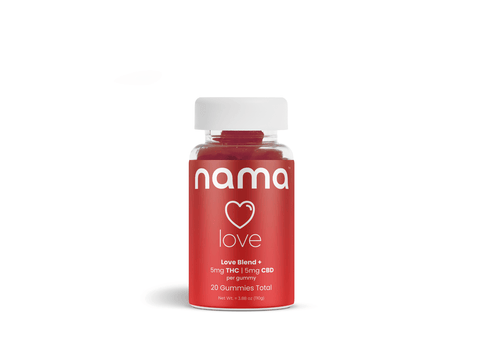
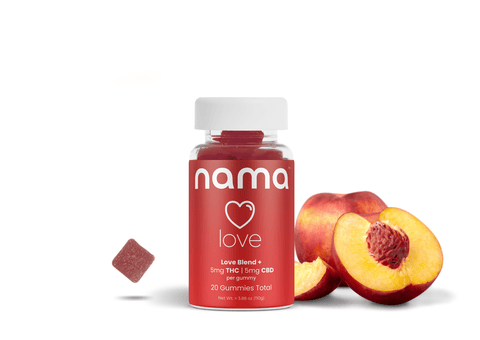


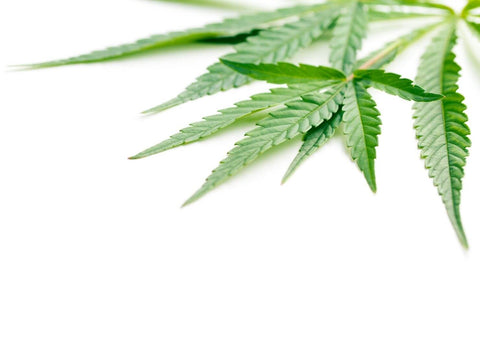
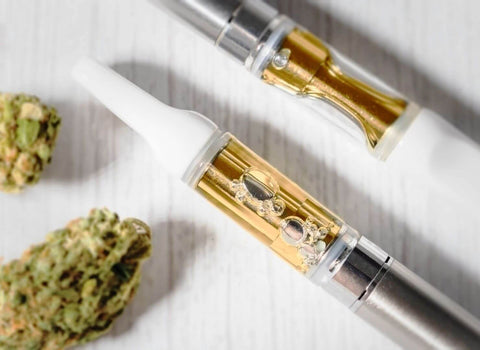

Comments (0)
There are no comments for this article. Be the first one to leave a message!